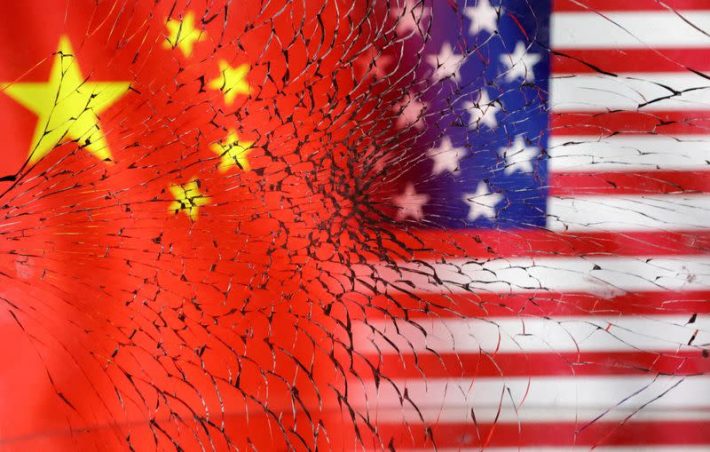A top Treasury official says the United States may need to take “more creative” stances beyond tariffs to protect US industries and workers against China’s excess industrial capacity.
Jay Shambaugh, Treasury Undersecretary for International Affairs, told a Council on Foreign Relations event on Wednesday that China’s production has become “untethered” from domestic or global economic demand, unleashing exports that threaten jobs in the US and other countries.
The economic diplomat said the traditional trade defence tools, such as the ‘Section 301’ tariffs increased recently by President Joe Biden, may not be sufficient to deal with such challenges.
ALSO SEE: China Shifting to ‘Green’ Steel Production as EU Levy Looms
“More creative approaches may be necessary to mitigate the impacts of China’s overcapacity,” Shambaugh said. “We should be clear: defence against overcapacity or dumping is not protectionist or anti-trade, it is an attempt to safeguard firms and workers from distortions in another economy.”
Shambaugh did not elaborate on further steps that may be necessary or under consideration by the Biden administration.
Belt & Road subsidies
Earlier on Wednesday, a group of bipartisan lawmakers and steel producers called on Congress to pass new legislation that would apply US anti-dumping and anti-subsidy duties on Chinese goods to those produced by Chinese companies in third countries.
The “Leveling the Playing Field 2.0” bill sponsored by Representative Terri Sewell, a Democrat and Representative Bill Johnson, a Republican, also would allow China’s “Belt and Road” subsidies for projects in other countries to be counted in anti-subsidy cases.
The Biden administration also on Wednesday unveiled a new effort with Mexico to combat China’s circumvention of US steel and aluminium tariffs, instituting a new North American “melted and poured” standard for steel imported into the US from Mexico.
Shambaugh’s remarks amplified concerns voiced by US Treasury Secretary Janet Yellen on a trip to China in April, when she warned that Beijing’s over-investment and excess production capacity in key industries was unacceptable.
The trip foreshadowed Biden’s steep tariff hikes on an array of Chinese goods, including electric vehicles, solar panels, semiconductors and critical minerals.
‘Persistent over-investment’
He defined China’s overcapacity as “production capacity in excess of domestic demand and untethered from global demand,” stemming from persistent over-investment that is facilitated by extensive state support.
China’s production capacity in some industries far exceeds global demand projections, including for solar panels, lithium-ion batteries and electric vehicles, he said, adding that China’s factory utilization rates were falling, while the share of money-losing firms was rising, reaching 28% of publicly traded Chinese automakers.
“These conditions would not appear in a normal, market economy. What we are seeing is a fundamental distortion, driven by government policy,” Shambaugh said.
It would be better for China to work with other countries to address their concerns and rein in excess capacity to boost efficiency and productivity, expand its social safety net and boost domestic demand efficiency.
“We will take defensive action if needed, but we would prefer for China to take action itself to address the macroeconomic and structural forces that are generating the potential for a second ‘China shock’ for its major trading partners,” Shambaugh said.

Calls for de minimis rule to be fixed
Shambaugh’s remarks come at a time when support appears to be building among US lawmakers and Biden ministers for a change to the programme that allows purchasers to import up to $800 worth of foreign goods per day without paying tariffs.
Homeland Security Secretary Alejandro Mayorkas called for a “legislative fix” to the de minimis exception “and the exploitation of that exception” – reportedly the first time a key Biden official has said they hope Congress will restrict the rule, according to a report by International Trade Today (ITT) on Tuesday.
Mayorkas said the whole concept that de minimis imports were insignificant was wrong.
“De minimis is built on a false premise, that low value means low risk,” he was quoted as saying, adding that if people could stand beside Customs and Border Protection inspectors and see what the agency discovers – items such as narcotics, ghost guns, and “all sorts of contraband” – they would be shocked.
Chinese e-commerce giants such as Shein and Temu have been accused of exploiting the rule, allegedly flooding the country with a million packages of cheap retail goods every day, according to a report by Time in February.
The flood of goods has reached a point where CBP chiefs have been urging the government to bring the number of shipments “down to a manageable level.”
Indeed, Customs officials proposed changing the rule last month, the ITT report said, adding that some Republican lawmakers had recommended that Chinese goods should not even be eligible for the trade exception.
House Speaker Mike Johnson was reported to have said this week he intends to put a bill up for a vote this year that includes a change to the de minimis provision. That idea was welcomed by Republicans on the Senate Finance Committee and textile companies.
Temu, Shein and other Chinese e-commerce firms also look to be facing duties on goods exported to the European Union.
- Reuters with additional input and editing by Jim Pollard
























